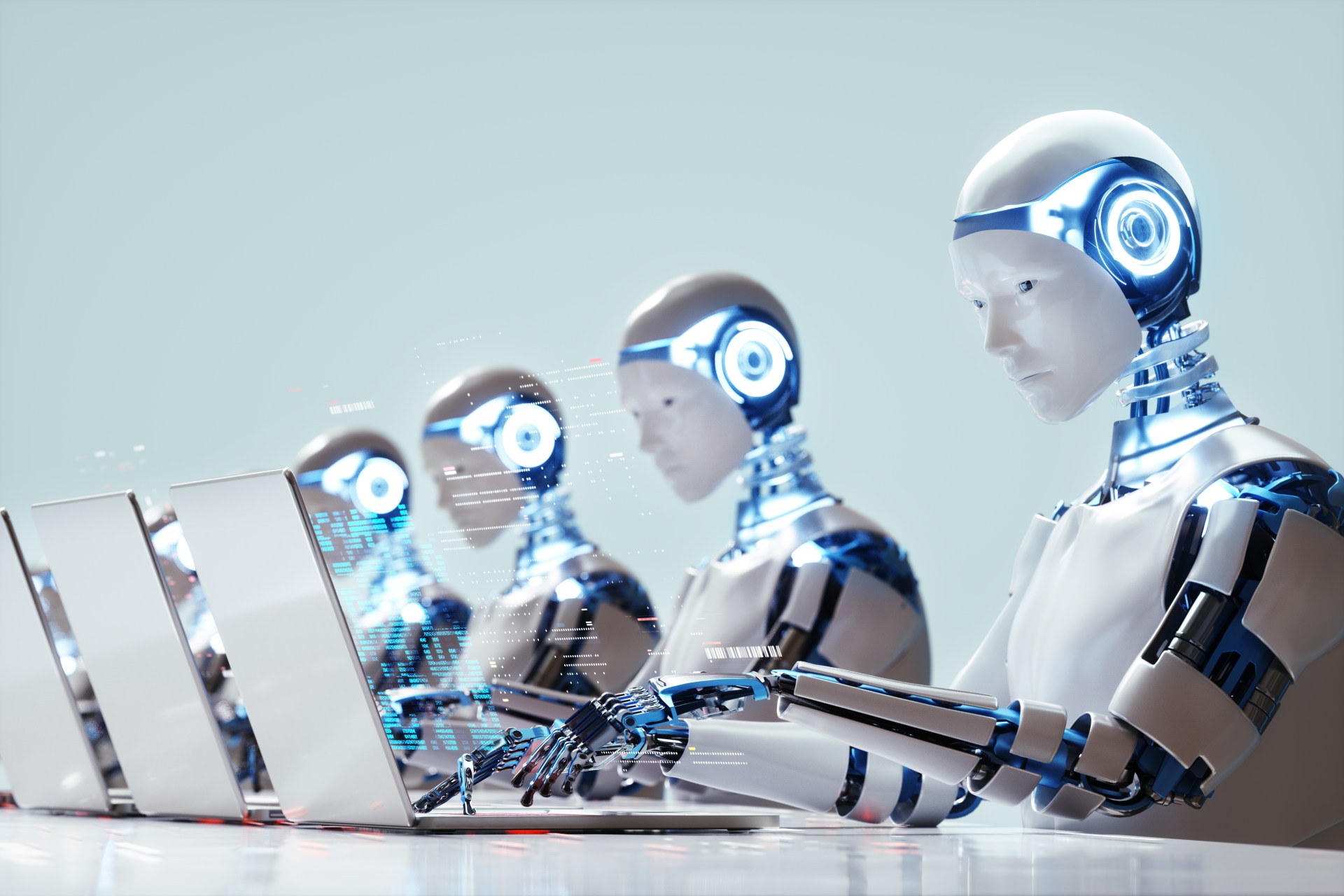The Impact of AI on the Workforce
Artificial intelligence (AI) is no longer a concept confined to science fiction or futuristic television shows. Over the past few years, AI has rapidly transformed various industries, reshaping the way we work and interact with technology. From virtual assistants and report generation to medical diagnostics, AI is taking over tasks that once required human effort and expertise.
While robots haven’t completely taken over all jobs yet, experts predict that AI could replace 300 million jobs globally by 2030. With an estimated 41% of companies planning to reduce staff numbers due to AI implementation, it’s natural to wonder: what does this mean for me? However, rather than fearing the future, it’s an opportunity to rethink, retrain, and potentially upgrade your career.
As some roles become obsolete, new ones are emerging where human skills still hold value. This article explores the 10 professions most likely to be displaced by AI, along with expert advice on how to stay ahead in this evolving landscape.
1. Data Entry Clerks
The role of data entry clerks is being increasingly automated through machine learning and optical character recognition (OCR) systems. These technologies can extract data from documents with high accuracy, reducing the need for manual input. While some tasks may still require a human touch, many traditional roles are disappearing.
What to do instead?
Consider transitioning into data analysis or management. Developing skills such as critical thinking, storytelling with data, and business insight will make you more valuable. Tools like Excel, SQL, and Python can help you work alongside AI, ensuring you remain relevant in the job market.
2. Telemarketers
Automated diallers and AI-driven sales tools are replacing traditional telemarketers. These systems can handle large volumes of calls and perform scripted sales pitches efficiently. However, relationship-building and empathy are still crucial in high-value or complex situations.
What to do instead?
Leverage your communication and persuasion skills in digital marketing, customer success, or modern sales roles. Learning about CRM systems and social media advertising can also help you stay competitive.
3. Basic Customer Service Representatives
Repetitive tasks like password resets and order status checks are ideal for AI-powered chatbots. These systems offer 24/7 support with high accuracy, making them a popular choice for businesses.
What to do instead?
Pivot into specialized roles such as customer relationship management, technical support, or client training. Enhancing problem-solving skills and emotional intelligence will increase your value in these fields.
4. Retail Cashiers
Self-checkout kiosks and mobile payment apps have been replacing traditional cashiers. Companies like Amazon Go are leading the way in fully automated retail experiences.
What to do instead?
Transition into retail management or customer experience roles. Exploring logistics, supply chain management, or technology implementation within retail environments can also open new opportunities.
5. Proofreaders and Copy Editors
AI-based tools like Grammarly and ChatGPT are now capable of catching spelling mistakes and offering writing suggestions. While higher-level creative editing still requires a human touch, mechanical editing is increasingly automated.
What to do instead?
Develop skills in content strategy, SEO, or digital content management. Focusing on brand storytelling and campaign strategy can make you indispensable in the marketing field.
6. Paralegals and Legal Assistants
AI systems like ROSS Intelligence and DoNotPay are automating tasks such as document review and case research. However, legal professionals can shift into tech-driven roles like legal operations or compliance.
What to do instead?
Consider positions in legal technology, such as legal ops or litigation support. Combining your expertise with industry advancements can help you stay relevant.
7. Bookkeepers
Rule-based functions like transaction tracking and financial reporting are becoming automated. Accounting software like QuickBooks and Xero streamline these processes, reducing human error.
What to do instead?
Transition into financial consulting, analysis, or auditing. Developing expertise in financial modeling and risk assessment can lead to strategic roles with higher earning potential.
8. Fast Food and Restaurant Workers
Automated devices are taking over order-taking and meal preparation in the food industry. However, creativity and decision-making still require human involvement.
What to do instead?
Explore innovative or managerial roles such as culinary innovation or restaurant management. Upskilling in leadership and operations can help you stay ahead in the hospitality sector.
9. Warehouse Workers
Automated warehouse systems are handling product selection, packing, and inventory tracking. Some workers have shifted to supervisory roles, but there are other options available.
What to do instead?
Build expertise in logistics coordination and warehouse technology operations. Gaining knowledge in automation systems and efficiency management can open up new opportunities.
10. Entry Level Market Research Analysts
AI tools like Tableau and Google’s Looker Studio are automating data collection and analysis. This trend is impacting junior market research analysts.
What to do instead?
Shift towards strategic roles such as business analyst or data scientist. Developing skills in data visualization and storytelling can make you stand out in the field.
Jobs That Are Safe from AI
Jobs requiring direct human interaction or creativity are currently safe from AI takeover. However, AI is advancing quickly in automating routine tasks. Experts suggest focusing on skills that AI cannot easily replicate, such as critical thinking, creativity, and emotional intelligence.
By investing in reskilling and lifelong learning, individuals can position themselves for success in this evolving landscape. Rather than fearing AI, embrace it as a tool to assist with time-consuming tasks, allowing you to focus on higher-level or creative work that makes you indispensable.







